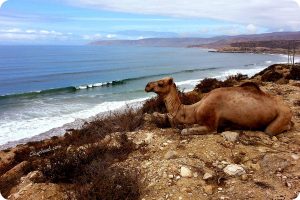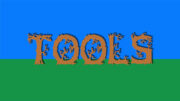 I’m sitting on the lanai in Maui enjoying breakfast after a really fun surf at the break we can see from the kitchen window. The enjoyment of the sound of the waves breaking and the birds singing is interrupted by the roar of leaf blowers and a sit down lawnmower. Cue the phrase “first world problems”, and that’s when it sank in how far from natural this development is.
I’m sitting on the lanai in Maui enjoying breakfast after a really fun surf at the break we can see from the kitchen window. The enjoyment of the sound of the waves breaking and the birds singing is interrupted by the roar of leaf blowers and a sit down lawnmower. Cue the phrase “first world problems”, and that’s when it sank in how far from natural this development is.
The monthly Home Owners Association (HOA) dues at this gated community in Maui are around $800 and where I live in California are $400. Both grounds are beautiful and very well taken care of, and at the same time I’m wondering where are the crops, the orchard, and the fruit trees? Every Tuesday a full crew of people come and mow the lawns and blow the leaves for what is usually a full days work. What if instead of taking the mowed grass and tree trimmings to the landfill they left picked fruit, lettuce, broccoli and other vegetables for us to eat? Maybe the homeowners who enjoy gardening can do some work in exchange for a reduction or elimination of dues? Maybe this can be a first step of heading in the direction of being able to feed ourselves and be self sufficient?
Why have so many of us gone out of our way to rid the land of edible plants or any livestock that can feed us?
I know little about gardening but I do know that our ancestors cherished their seeds, these were the investments that paid dividends and interest season after season. So what happened to our culture, why is growing our food or having chickens, goats or pigs running around so absent and even looked down on?
I grew up hunting and fishing and butchering meat and taking care of cattle. At some point in my teens or twenties I felt embarrassed that I was doing that kind of “dirty” manual labor and shame as if killing animals is immoral or wrong. At the time our practices were unconscious with no connection to our ancestors and not much respect or honor of nature, also red meat and fat had become unpopular and were viewed as bad and unhealthy.
I wanted to feel cool and popular and was very much caught up in the tyranny of trends. I suspect this is the primary reason we stay disconnected from our food and nature, and want nothing to do with living off the land and putting our hands and feet in the dirt and poop and blood and guts. It’s not cool, and we have been conditioned to believe that driving a Tesla to the supermarket will make us happier than harvesting our own food. Truth be told I don’t want to do it by myself or with just my wife and I, that sounds like a lot of hard work.
What sounds really fun is harvesting our food together as a tribe, having enough people to spread the work around and be efficient.
Maybe most importantly with enough people our different and unique talents and passions will be matched up with work we enjoy doing, instead of two people fighting over who does the “dirty” work, or wanting to be rich so we can pay someone else to do the “peasants” work. Also what I have noticed in Hawaii is many of the natives seemed to be content with their work, whether it’s driving a shuttle or working the fryer at a tourist restaurant. My hunch is that enough of their rich culture and supportive community has survived that they feel full and bring their joy with them wherever they go.
Seems like in our culture we have the double whammy of families that are to small and institutions that are to big, both lead to us being overworked, burned out, stressed, and feeling isolated, disconnected, and like we don’t belong. To small and we struggle to stay afloat, to big with rules and bureaucracy and intimacy is lost, it’s impossible for everyone to know each other.
The Native Indians say we cannot eat money and the frog does not drink up the pond he lives in.
I see the awareness of this wisdom growing and being put into practice: urban farming, backyard chickens and composting, and rainwater collection are wonderful examples. Other proverbs are: One finger cannot lift a pebble; and he who would do great things should not attempt them alone. Our yards are still fenced, our doors still locked, and we eat separately.
Mentally and emotionally is there any difference between the Berlin Wall and a fence between neighbors? Would forcibly removing the fence or wall address the reason the divider was put up in the first place? What would planting crops or raising chickens in defiance of HOA rules accomplish? Might it be better to work with our neighbors to change the rules? If they aren’t ready to change maybe that’s a sign we have outgrown our neighbors and need to find a more enlightened and welcoming community?
My neighbor asked the HOA board for a space for community garden and composting, they offered a small shaded space in the corner that seems unconducive to either. After we moved in I went door to door introducing myself and offering an online message board so we can notify each other of get togethers. I started to build a stone firepit on the beach and invited my neighbors to help. I stopped building because I want it to be our firepit and not my firepit. It seems that trying to turn the ship around or win people over is much harder than agreeing on a course before setting sail or joining folks who already share the same values.
Looking at the grounds of the HOA where I live and the one where we vacation in Hawaii it seems clear that the values of the association are to maintain and increase the sale and rental value. Dollar appreciation for a future cash out or cash cow. I grew up seeing this as normal and desirable, lately I’ve been asking the question of why? Why would I want to price myself, my kids, my friends, and any newcomers out of the neighborhood where I live?
If we all are living where we want to live and doing work we love would any of us ever sell our homes?
Could we even conceive of property, real estate, nursing homes and the like? Our ancestors viewed the land as part of their family, their mother or eldest relative, would you sell your mother? It makes sense that we mistreat and abandon both nature and our elders, as whatever programming we are running will show up in all areas of our lives.
The idea of retiring and moving someplace “better” is inconceivable to indigenous people, the tribe is THE place to be and leaving is the equivalent of being orphaned. Decisions are made by asking how will this effect the next seven generations, and why not if that land has been their home for hundreds or thousands of years? The idea of living someplace forever is ingrained in the culture, and I can only imagine how safe that feels and how strong the sense of belonging must be.
Even the nomadic peoples had a secure territory, literally following the herd that was the source of their food, clothing, and shelter. Like the herd they followed they traveled together and stayed together. For a visual of what this looks like I think the movie Avatar portrays beautifully and brilliantly indigenous beliefs and how our ancestors lived.
How did we get so disconnected from the world we live on and the ways of our ancestors? Maybe a better question is how do we reconnect?
Or how do we start to see reconnecting with nature as desirable, essential, and necessary? This last question is the reason I write and create media content, and as one of my teachers says “put it in the river”. I don’t know what will happen to this article or where the “current” will take it, my job is to listen to my gut and follow the threads of insight.
In order for me to hear or be open to new information I usually need a referral, a recommendation from a trusted source. If my first teacher wasn’t recommended by a friend I probably would have ran far far away, as what he was saying was very foreign to me at the time. After about a year he told me we couldn’t even have this conversation a year ago, it took that long for me to take off the armor and let go of the beliefs that weren’t mine and weren’t serving me. He didn’t and probably couldn’t reach me and teach me on his own, I needed to hear these teachings from multiple sources.
So I post this knowledge in places that family, friends, and acquaintances can see it when or if they are ready. Also in forums where I am known, maybe someone who doesn’t know me but does trust the forum will be able to hear a little bit of this wisdom that I am passing on. This brings me to the question why do we live the way we live and how did this come to be?
 What I have seen in Fiji and Morocco is young locals leaving their traditional villages for a modern single family home while older western expats are buying the more traditional homes. It seems the younger generation is seduced by the idea of a “better” more material life portrayed on television and other media, while the older westerners are burnt out and unfulfilled by material wealth and willing to let go of everything for a slower paced more satisfying people centered life.
What I have seen in Fiji and Morocco is young locals leaving their traditional villages for a modern single family home while older western expats are buying the more traditional homes. It seems the younger generation is seduced by the idea of a “better” more material life portrayed on television and other media, while the older westerners are burnt out and unfulfilled by material wealth and willing to let go of everything for a slower paced more satisfying people centered life.
I suspect the impact of colonization on villages has diluted their ancient rituals to the point that modern living offers more juice and maybe village life seems like drudgery by comparison. Also their traditional belief of spirit or divinity within and everywhere has been replaced by the institutionalized hierarchical religion of the colonizers. In neither Fiji nor Morocco did I see the concept of life purpose. My understanding is a healthy well functioning community has this core belief:
Each of us came to this world to fulfill a special mission of the utmost importance that only we can do. Life feels exciting and exhilarating when we view each other in this way and see ourselves as vital to the survival of the universe.
I can’t imagine going back to grinding out a 9 to 5 with a retirement plan and a house in the suburbs. Seeing the resistance of my current HOA to change I’m reminded of the saying go where you are celebrated not where you are merely tolerated. At the same time I suspect I’m not the only one who is ready to reconnect and appreciate, in a deep and intimate way, each other and our land and let go of counting how many pieces of paper we can sell for.



